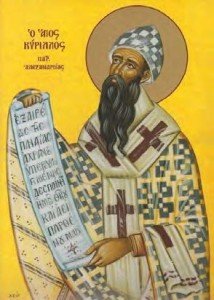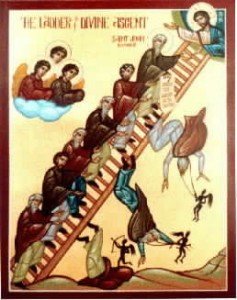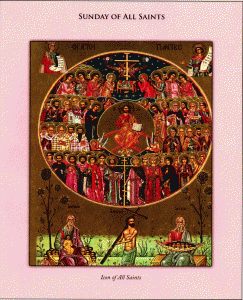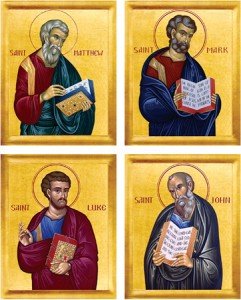I have been sharing the thoughts of St. Cyril on Christ as the Emmanuel. The whole spiritual experience reflected in Cyril’s Christology implies two central intuitions: (1) God, in the search for incomplete humanity, does not stop halfway, but goes where humanity is – in death itself; (2) It is not an ideal, perfect humanity that the Son of God assumes, but that humanity which bears all the consequences of sin, particularly mortality and corruptibility. Except for sin itself – a personal act of rebellion against God to which Christ, being God, remained totally foreign – he assumed all the limitations of incomplete man, including suffering and death.
During the bitter Christological controversies of the fifth and sixth centuries, the Christology of Cyril was challenged from two sides. First, the school of Theodore of Mopsuestia, eventually condemned in the person of Nestorius, who was the archbishop of Constantinople, not only reflected a legitimate concern for the full and free humanity of Christ but also attempted to rationalize the mystery (How could the eternal Son “be born”? How could the passionless God “suffer and die”?). It accepted as absolute the Greek Platonic philosophical category of divine changelessness (atrepsia), which excluded such realistic affirmations as a divine birth in time or the death of the Son of God on Golgotha.
Second, the Cyrillian view of Jesus Christ was also challenged by those who interpreted it in an Apollinarian sense. Again on the basis of Platonism, Apollinaris, Bishop of Laodicea, saw Jesus as God with a human body but without a human soul: why, indeed, was there a need in him for another spiritual center besides the divine Logos? But then was he truly a man, since he was lacking a distinctively human spiritual identity? Even more sophisticated than Apollinarianism, the teaching of Julian of Halicarnassus claimed that, since death came through sin, the sinless humanity of Jesus could not in any way be affected by corruptibility and mortality. The consequence was that the humanity of Jesus was incorruptible and perfect humanity, in the sense of not being fully like our fallen nature, and that therefore his death was not like our death.
Hopefully you, my readers, can see how difficult a task it was to come to some true understanding of Who Jesus IS. Dealing with the profound mystery of God’s INCARNATION, is not simple. It truly takes faith!






